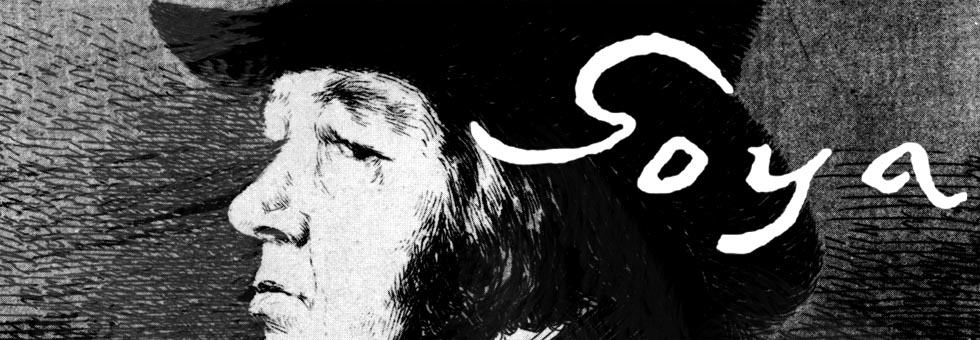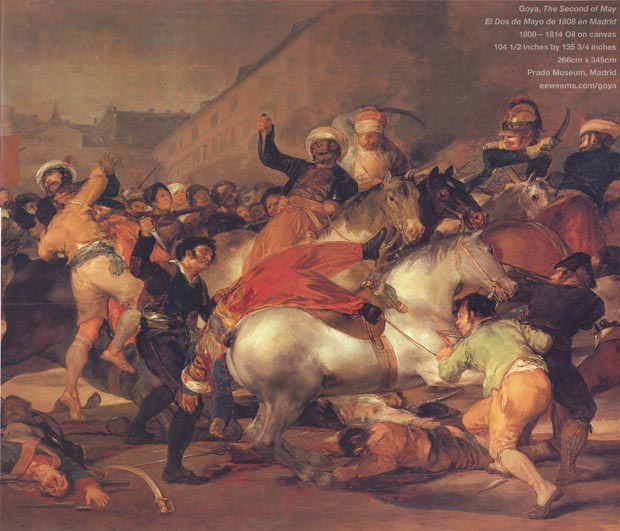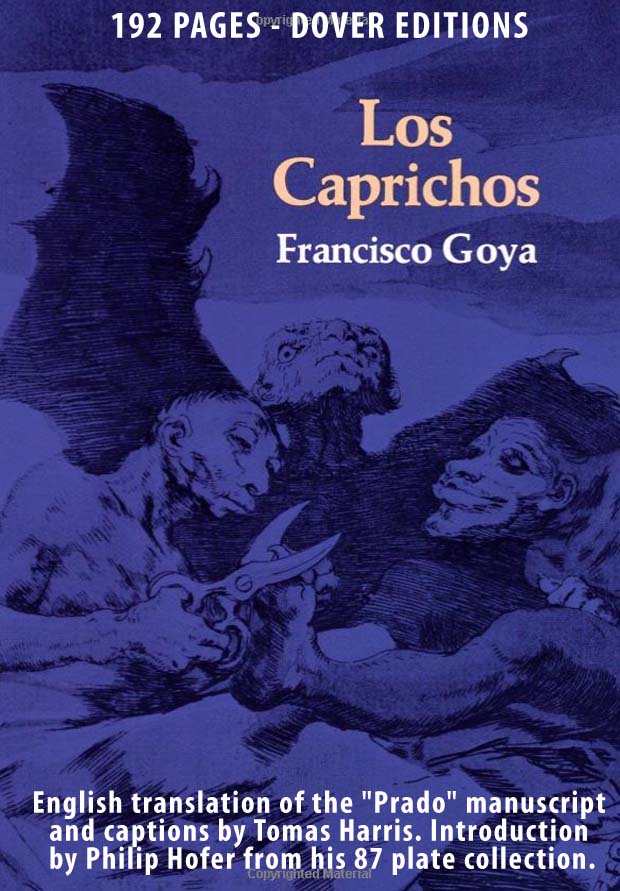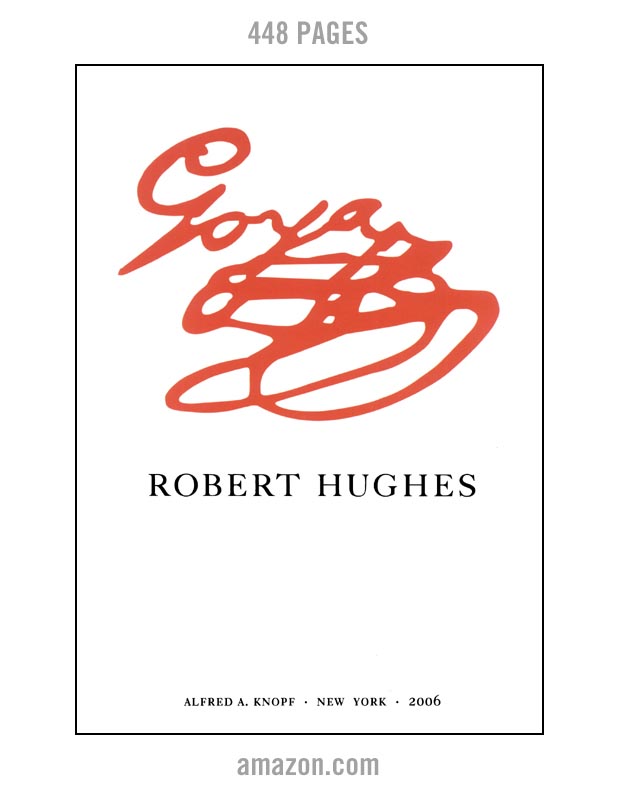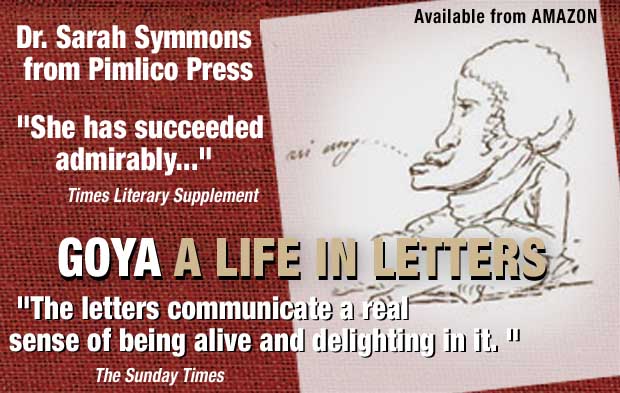The Second of May
El Dos de Mayo de 1808 en Madrid
The Second of May
El Dos de Mayo de 1808 en Madrid
1808 – 1814 Oil on canvas
104 1/2 inches by 135 3/4 inches
266cm x 345cm
Prado Museum, Madrid
Goya sent a petition to King Ferdinand requesting to paint the images now known as The Second of May 1808 and The Third of May 1808, each painting commemorating episodes during the Spanish insurrection against the Napoleonic occupation of the country.
Read about The Third of May for a more thorough discussion of these paintings.
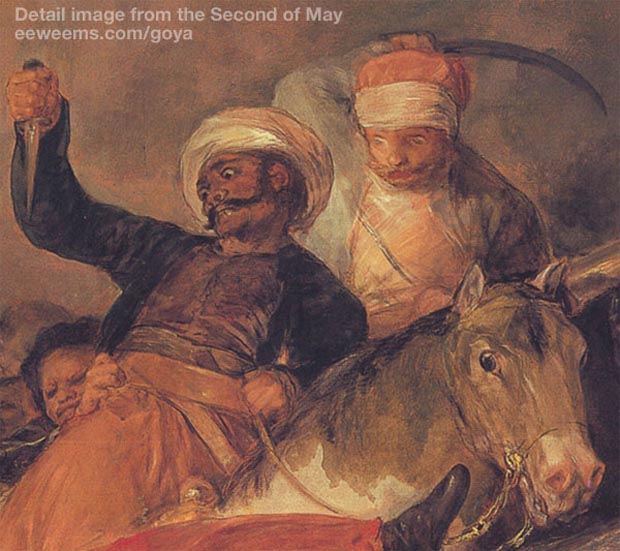
Original Page 1997 - Last Update Sept 2023
AMAZON
Goya The Terrible Sublime - Graphic Novel - (Spanish Edition) - Amazon
"From this headlong seizure of life we should not expect a calm and refined art, nor a reflective one. Yet Goya was more than a Nietzschean egoist riding roughshod over the world to assert his supermanhood. He was receptive to all shades of feeling, and it was his extreme sensitivity as well as his muscular temerity that actuated his assaults on the outrageous society of Spain." From Thomas Craven's essay on Goya from MEN OF ART (1931).
"...Loneliness has its limits, for Goya was not a prophet but a painter. If he had not been a painter his attitude to life would have found expression only in preaching or suicide." From Andre Malroux's essay in SATURN: AN ESSAY ON GOYA (1957).
"Goya is always a great artist, often a frightening one...light and shade play upon atrocious horrors." From Charles Baudelaire's essay on Goya from CURIOSITES ESTRANGERS (1842).
"[An] extraordinary mingling of hatred and compassion, despair and sardonic humour, realism and fantasy." From the foreword by Aldous Huxley to THE COMPLETE ETCHINGS OF GOYA (1962).
"His analysis in paint, chalk and ink of mass disaster and human frailty pointed to someone obsessed with the chaos of existence..." From the book on Goya by Sarah Symmons (1998).
"I cannot forgive you for admiring Goya...I find nothing in the least pleasing about his paintings or his etchings..." From a letter to (spanish) Duchess Colonna from the French writer Prosper Merimee (1869).
GOYA : Los Caprichos - Dover Edition - Amazon
